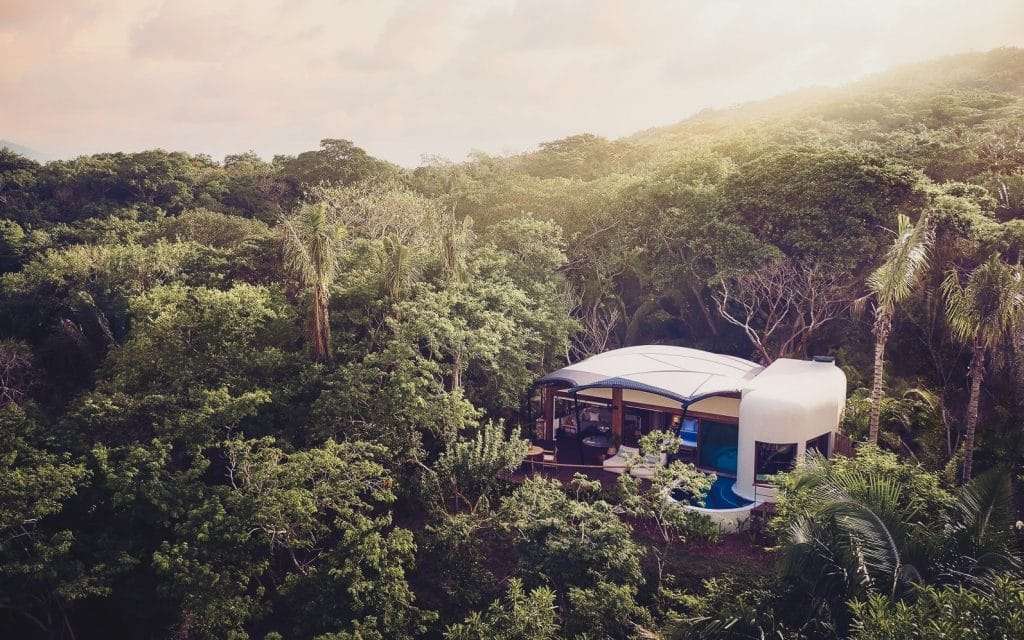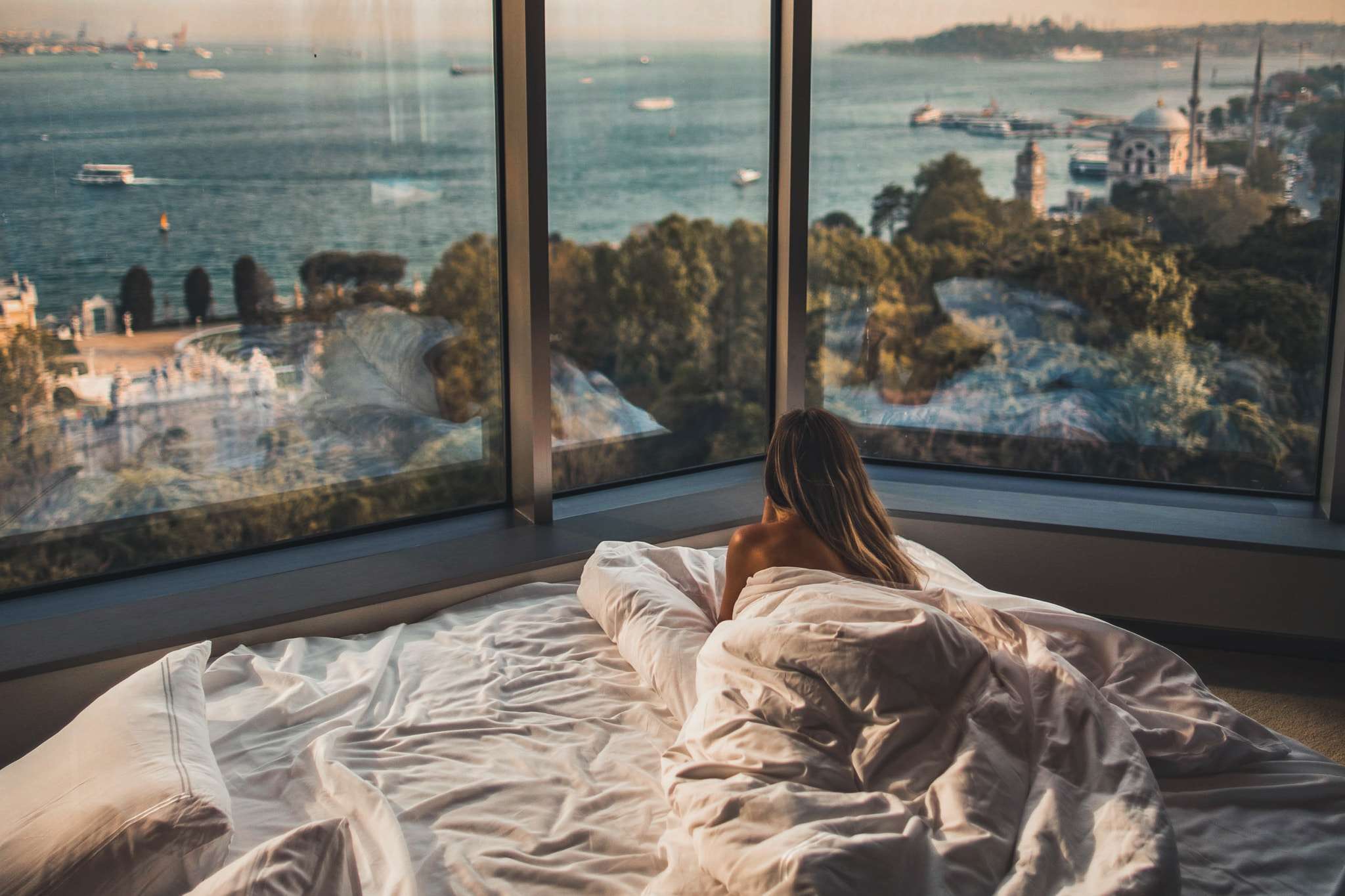As travel finally feels like an option again, new data from Booking.com illustrates how priorities have shifted and how traveling sustainably is now a top consideration.
A spike in demand for sustainable travel options is directly related to the pandemic. According to new findings from the popular travel platform Booking.com, 61 percent of respondents say the pandemic has made them want to travel more sustainably.
The findings also reveal that 83 percent of travelers see sustainable travel as vital, especially when traveling internationally, and nearly half say they’re not finding enough sustainable travel options.
“Over the six years we’ve been conducting this research, it’s been inspiring to see awareness of the importance of sustainable travel consistently grow, both with our customers and now with our partners, too,” Marianne Gybels, Director of Sustainability for Booking.com, said in a statement.
“The good intentions are there on all sides, but there is still a lot of work to be done to make sustainable travel an easy choice for everyone,” she said.
Sustainable travel options
The findings come from insights obtained from more than 29,000 travelers across 30 countries. Booking.com calls the pandemic “the tipping point” for travelers to “finally commit to their own sustainable journey.” According to the findings, 72 percent of global travelers said they believe people have to act now to protect the planet for future generations of world travelers.
“The more sustainable practices we can help our partners to identify and implement, the more we can experiment with how best to highlight this information to customers and ultimately make sustainability a transparent and easily identifiable part of their travel decision-making process,” Gybels said.
“A small change like eliminating single-use plastics or switching to energy-efficient LED light bulbs might seem insignificant in isolation, but multiplied by millions of travelers and properties around the world, these small steps all start to add up to a much bigger potential positive impact.”

The findings also come as Beyond Green, a global portfolio of sustainable hotels, resorts, and lodges, announces a new travel booking platform in partnership with And Beyond (stylized &Beyond). Its new online “Plan Your Trip” itinerary platform provides custom, turnkey booking options, launching with destinations in Africa and South America, and Asia to follow.
Like an old-fashioned travel agent, the platform assists with reservations, transfers, tours and other destination activities. It’s currently offering 9, 12, 14, and 15-day excursions across Botswana, Rwanda, Kenya, Namibia, South Africa, Chile, and Antarctica, as well as a “voyage through South America focused on wildlife conservation.”
“The Beyond Green platform aligns perfectly with our mission statement of striving to leave the world a better place through the delivery of extraordinary guest experiences,” Joss Kent, CEO of And Beyond said in a statement shared with Ethos. “Having been one of the brand’s Founding Members, we are even more proud to partner with Beyond Green even more closely. With the world more focused on the need for preserve its wild places than ever before, we believe that this new partnership will be a powerful new outlet to convert ever more travelers to sustainable travel practices.”
Eco hotels
Hotels continue to increase their sustainability commitments. Across tourist destinations like The Maldives and Costa Rica, the industry is prioritizing wildlife conservation and preservation as well as education. In the Galápagos, the Hilton is the first points Hotel to open in the region with a big commitment to conservation. It’s located in the Miconia Highland Forests adjacent to the Galápagos National Park.
Another points hotel, the Radisson Hotel Group, has also just announced a five-year sustainability plan, including a timeline to achieve net-zero by 2050.
“While net zero by 2050 seems far away, we need to take action immediately,” Inge Huijbrechts, global SVP of sustainability, security and corporate communications, Radisson Hotel Group, said in a statement.

“Our world needs Responsible Businesses now more than ever, and we need to accelerate global climate action by 2030 in order to ensure a livable future for both our people and our planet. Much needed progress can be made by taking everyone in the hospitality value chain on the sustainability journey by setting increasingly ambitious sustainability goals,” Huijbrechts said.
Last year, the group reduced its carbon footprint by 23 percent per square meter and reduced 13 percent of its water footprint per square meter over 2019’s use. Currently, more than 56 of its properties run entirely on renewable electricity.
Last year also saw a partnership between the World Travel & Tourism Council, the Sustainable Hospitality Alliance, and leading hotel companies totaling more than 25,000 locations worldwide, in order to develop the industry’s first unified sustainability standards “in a clear and transparent manner for all travelers and stakeholders.”
Making sustainable choices easier
Hotels have a clear responsibility to reduce their emissions, particularly in light of the recent Intergovernmental Panel on Climate Change report that calls for urgent reductions before the end of the decade.
Booking.com says it has a responsibility too, “to make sustainable choices easier, both for accommodation providers and travelers.”

The platform says is now displaying more than 30 certifications that are approved by the Global Sustainable Tourism Council, Green Tourism, and the E.U. Ecolabel, as well as multiple individual hotel chain sustainability programs. It’s leveraging its recent findings to encourage more hotels to update their sustainability information across five key areas: waste, energy and greenhouse gases, water, supporting local communities, and protecting nature.
“From this global roll-out, hundreds of thousands of properties have already started to share at least some of their sustainability information with Booking.com, which can be viewed on the ‘Sustainability initiatives’ banner on each of their property pages,” the platform says.
“While it’s still early days, this is an important first step in providing more sustainability information in a transparent way to consumers, ultimately making it easier for them to start making more sustainable travel choices.”


